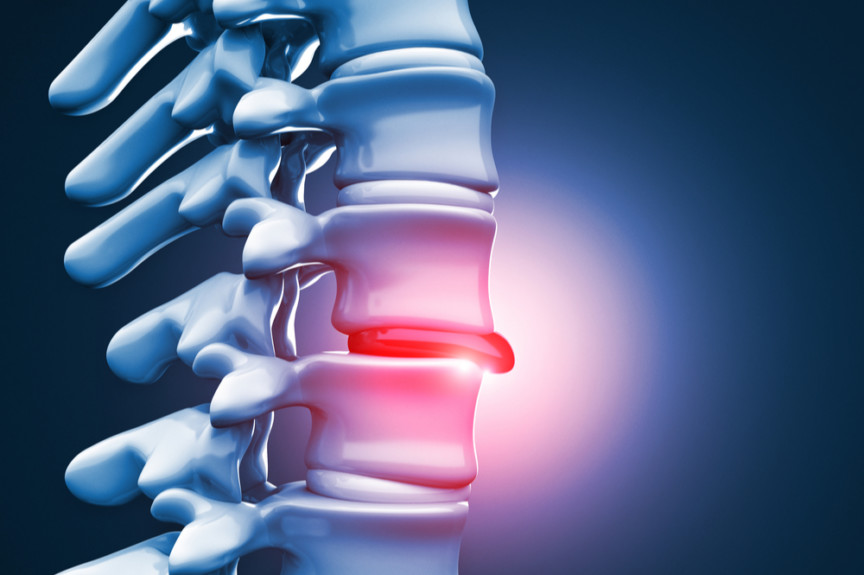Millions of Americans live with chronic, debilitating back pain, and in some cases this pain turns into a herniated disk. In many cases, a herniated disc will also lead to neck, arm, and, leg pain in addition to back pain. Sometimes referred to as a slipped or ruptured disc, a herniated disc can affect any part of the spine, but it most often occurs in the cervical spine (neck) or lumbar spine (low back). Those who have a herniated disc usually experience a pinching sensation or even pain and numbness in the neck, arm, low back, and leg. There are varying degrees of herniated discs, which is why it is important to see a spine doctor if you experience any of the symptoms. In some cases a herniated disc can be treated without surgery, but it is important you see a professional pain management specialist in order to determine what the best path is.
Why Do Herniated Discs Develop?
Discs are essentially soft pads that sit in between the bony vertebrae that make up the entire spinal column. They are made from a thick ring of cartilage and allow the back to bend, move, and even act as shock absorbers. Discs are incredibly important to the health and the overall movement of the back and should not be taken for granted. However, many people do not fully understand their role – that is until one ruptures or slips. Before a disc becomes herniated it often ‘bulges’, or seeps out from the spinal column, putting pressure on the nerves. Even a bulging disc can cause pain, numbness, and weakness. Here is a brief look at the most common symptoms of a herniated disc:
- Burning sensation
- Numbness in leg or foot
- Pain with certain movements, namely twisting or bending over
- Pain in both legs
- Intensified pain with prolonged sitting or bending
- Weakness in the legs
In order to be diagnosed with a herniated disc, make an appointment with a Plano spine doctor today. There are numerous other conditions and situations that may result in similar symptoms of a herniated disc, so it is important you meet with a professional before diagnosing yourself.
Treatment Options
Always consult a medical professional before starting any treatment plan for a herniated disc. There are numerous options that may be ideal for certain individuals, depending on their needs, current condition, and medical history. With that in mind, here is a look at some of the best treatment options for a herniated disc:
- Physical therapy
- Ice and heat therapy for pain relief
- Chiropractic manipulation
- Non-steroidal anti-inflammatory drugs (NSAIDs)
- Oral steroids
- Epidural injections
- Surgery
To learn more about your treatment options for a herniated disc, please contact our Plano spine center today.

